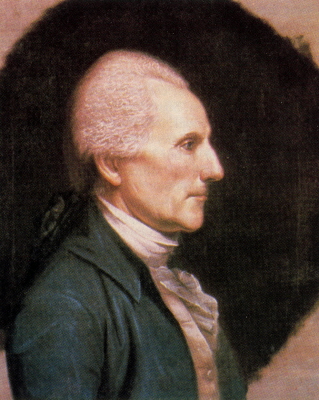Additional Letters From The Federal Farmer, 169 (1788)
Richard Henry Lee: Frases em inglês
Additional Letters From The Federal Farmer, 53 (1788); although generally attributed to Lee, his authorship of these letters is disputed in "The Authorship of the Letters from the Federal Farmer" by Gordon S. Wood, in The William and Mary Quarterly, Third Series, Vol. 31, No. 2 (April 1974) http://www.jstor.org/stable/1920914
State Gazette (Charleston) (8 September 1788)
A militia, when properly formed, are in fact the people themselves, and render regular troops in a great measure unnecessary. The powers to form and arm the militia, to appoint their officers, and to command their services, are very important; nor ought they in a confederated republic to be lodged, solely, in any one member of the government. First, the constitution ought to secure a genuine and guard against a select militia, by providing that the militia shall always be kept well organized, armed, and disciplined, and include, according to the past and general usuage of the states, all men capable of bearing arms; and that all regulations tending to render this general militia useless and defenceless, by establishing select corps of militia, or distinct bodies of military men, not having permanent interests and attachments in the community to be avoided. I am persuaded, I need not multiply words to convince you of the value and solidity of this principle, as it respects general liberty, and the duration of a free and mild government: having this principle well fixed by the constitution, then the federal head may prescribe a general uniform plan, on which the respective states shall form and train the militia, appoint their officers and solely manage them, except when called into the service of the union, and when called into that service, they may be commanded and governed by the union. This arrangement combines energy and safety in it; it places the sword in the hands of the solid interest of the community, and not in the hands of men destitute of property, of principle, or of attachment to the society and government, who often form the select corps of peace or ordinary establishments: by it, the militia are the people, immediately under the management of the state governments, but on a uniform federal plan, and called into the service, command, and government of the union, when necessary for the common defence and general tranquility. But, say gentlemen, the general militia are for the most part employed at home in their private concerns, cannot well be called out, or be depended upon; that we must have a select militia; that is, as I understand it, particular corps or bodies of young men, and of men who have but little to do at home, particularly armed and disciplined in some measure, at the public expence, and always ready to take the field. These corps, not much unlike regular troops, will ever produce an inattention to the general militia; and the consequence has ever been, and always must be, that the substantial men, having families and property, will generally be without arms, without knowing the use of them, and defenceless; whereas, to preserve liberty, it is essential that the whole body of the people always possess arms, and be taught alike, especially when young, how to use them; nor does it follow from this, that all promiscuously must go into actual service on every occasion. The mind that aims at a select militia, must be influenced by a truly anti-republican principle; and when we see many men disposed to practice upon it, whenever they can prevail, no wonder true republicans are for carefully guarding against it. As a farther check, it may be proper to add, that the militia of any state shall not remain in the service of the union, beyond a given period, without the express consent of the state legislature.
Additional Letters From The Federal Farmer, 169 (1788)
